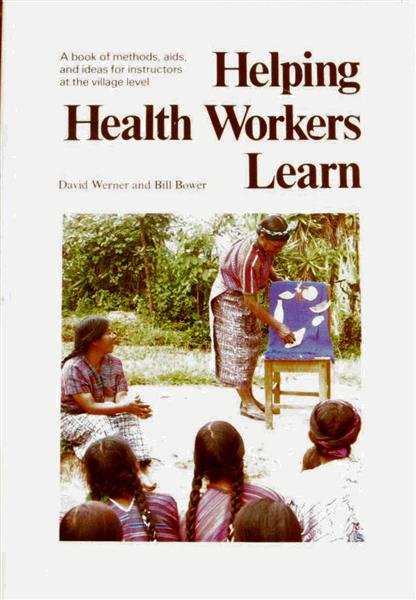
 |

Helping Health Workers LearnDavid Werner and Bill Bower Published by the Hesperian Society 20 th printing 2002
This very popular book is also a companion piece to "Where there is no Doctor" The authors have a lot of experience in Developing countries. This book gives suggestions on how to deal with common basic problems in the developing world in the context of poverty and corruption. It presents some very original thoughts on how to improve education by involving local people more. It has a definite sociological analysis on how much of the problems affecting local peoples in developing countries can be traced to inequalities. It presents arguments how traditional doctor/nurse based solutions can contribute to and maintain these inequalities. At times I felt these arguments to be wearisome and too centred on doctor bashings. I had to reflect though how my own medical education might have been different if we had more group cooperative involvement discussions rather than the traditional didactic lectures based on authority and subservient which fostered far too much rivalry and competition in medical schools. Much of what this book is food for thought and like its predecessor it does not claim to be a blueprint for international development and each project must find its own way. Recently, I also realized that our own travel clinic was see both International Development Students as well as missionaries. Students of International development- devote themselves to studying through a four year university program the positive and negative effects of interventions and what solutions should and should not be used. Many missionaries may have similar training but many are people who just signed up for a working vacation. Without the understanding that a book like Helping Health Care Workers Learn , it is more likely than not that untrained volunteers will ultimately harm more people in the long run. This book like the other publications from the Hesperian Society are must-reads for anyone doing international relief. Medically trained may find the descriptions of disease too simplistic (but in these low resource situations that is exactly the point) but may benefit from the philosophic questions this book brings forth
|
 |